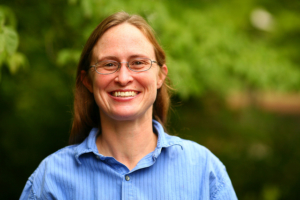SOU to help lead research initiative for undergraduate institutions
(Ashland, Ore.) — Southern Oregon University is part of a consortium of 11 colleges and universities across the country that will use a new, $100,000 grant from the National Science Foundation to plan and host three regional workshops intended to advance research enterprises at Primarily Undergraduate Institutions (PUIs).
The goal of NSF’s GRANTED initiative (Growing Research Access for Nationally Transformative Equity and Diversity) is to “break down systemic barriers that hinder underrepresented investigators, students, and institutions typically overlooked as participants in NSF’s research funding programs.” The project is intended to increase research capacity and improve infrastructure at emerging research institutions.
Hala Schepmann, a chemistry professor at SOU, is one of six “principal investigators,” or project leaders, for the grant that will bring workshops to the Northwest, Midwest and Southeast regions of the country. Taylor Smith, SOU’s assistant vice president for Advancement Services and Sponsored Programs, is serving as support staff for the Northwest regional workshop.
“It can be challenging to navigate the research funding and practice process at small- and mid-size universities which often lack some of the resources available at larger research institutions,” Schepmann said. “This work will help SOU advance research activities both regionally and nationally, ultimately increasing faculty and student engagement in the nation’s research enterprise.”
All three of the inter-institutional, regional workshops are expected to take place in the fall of 2024, with the Northwest event taking place at the University of Portland because of its close proximity to several non-Ph.D.-granting institutions.
The other institutions taking part in the GRANTED project are Western Oregon University and Lewis & Clark College in Oregon, John Carroll University in Ohio, University of Detroit Mercy in Michigan, Black Hills State University in South Dakota, Hobart and William Smith Colleges in New York, Gonzaga University in Washington, Furman University in South Carolina and the University of Idaho.
The regional workshops will bring together teams of research administrators, institutional leaders and faculty from predominantly undergraduate, emerging research and minority-serving institutions. Workshop participants will work together to discern and design interventions to common barriers.
Advancing research work at PUIs will promote faculty and student engagement and broaden participation in research nationwide. The workshops are expected to result in a set of best practices that will be part of a research toolkit for PUIs across the country.
-SOU-




